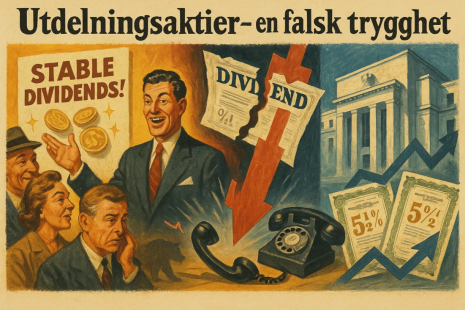
GURUSNACK
In response to tight housing markets, the Berlin government has decided to make things worse through price controls and new regulations on housing construction.
Guess what:
It doesn't even work.
We all know the routine: a public figure says something forbidden, and the Guardians of Allowable Opinion demand ritual expiation of the sin in the form of a groveling public apology.
It's just assumed that the person must comply with the ritual, and that compliance raises the public's estimate of him.
Welp, it ain't so.
That's the conclusion of an academic paper by Columbia University's Richard Hanania.
It's called "Does Apologizing Work? An Empirical Test of the Conventional Wisdom."
Here's what Hanania found:
"Overall, the evidence suggests that when a prominent figure apologizes for a controversial statement, the public is either unaffected or becomes more likely to desire that the individual be punished."
How about that!
One hopes this finding means we can be spared too many more instances of this drearily predictable ritual, though I have to admit I'm not optimistic.
I do cheer in those rare instances when someone defies expectations and tells the censors to pound sand.
Libra's value is based on a basket of goods tied to government fiat currencies. Needless to say, Zuckerberg is no Hayek. And the Libra is no Bitcoin.
The Versailles treaty was in many ways an extension of the imperialistic impulses that caused the Great War in the first place. Even worse, it paved the way for World War II.
There is reason to believe low-interest rate policy has lowered productivity, lessened economic growth, and favored large firms at the expense of small firms and innovation. Greater inequality and stagnating wealth has resulted.
Being held accountabile in the real world usually means making reparations for incompetence or malice. But this sort of accountability almost never applies to governments.
Natural constraints on firm size are numerous, and in a truly free market, large firms would be constantly prone to being broken up and put out of business by competition. And all to often, huge firms become more long-lived due to government intervention.
Mark Thornton argues that austerity plans based on tax increases fare much worse than plans based on reducing expenditures.
LYCKA TILL
Göran Högbergs Finanskrönika varje vecka – klicka här för mer information!
 Tidigare artiklar på Börstjänaren:
Tidigare artiklar på Börstjänaren:| 2025-01-24 | Kriser |
| 2024-07-23 | Carl Bildt |
| 2024-07-18 | Paradoxala resultat |
| 2024-06-28 | Mångfald, Jämlikhet och Inkludering |
| 2024-06-25 | Kommersiella fastigheter inför en stor kris |
| 2024-06-22 | Makt korrumperar |
| 2024-06-20 | VERRY HIGH RISK |
| 2024-06-15 | Ökad politisering leder till ökad polarisering |
| 2024-06-14 | Kronan är 20% undervärderad! |
| 2024-06-14 | Två tillfällen för stora pengar |
| 2024-06-13 | International living global retirement index |
| 2024-06-13 | Vad händer i USA? |
| 2024-06-12 | Kontroll ”freaks” |
| 2024-06-11 | VARNING FÖR BÖRSFALL! |
| 2024-06-10 | BÖRSTIPS! |
| 2024-06-08 | Njut av gurus |
| 2024-06-08 | Räntesänkningar långt borta |
| 2024-06-04 | Indien 80% billigare än Schweiz |
| 2024-06-03 | Trenderna i de finansiella marknaderna |
| 2024-05-16 | Sunt förnuft, resonlighet och humor |
- 1
- 2
- 3
- 4
- 5
- 6
- 7
- 8
- 9
- 10
- 11
- 12
- 13
- 14
- 15
- 16
- 17
- 18
- 19
- 20
- 21
- 22
- 23
- 24
- 25
- 26
- 27
- 28
- 29
- 30
- 31
- 32
- 33
- 34
- 35
- 36
- 37
- 38
- 39
- 40
- 41
- 42
- 43
- 44
- 45
- 46
- 47
- 48
- 49
- 50
- 51
- 52
- 53
- 54
- 55
- 56
- 57
- 58
- 59
- 60
- 61
- 62
- 63
- 64
- 65
- 66
- 67
- 68
- 69
- 70
- 71
- 72
- 73
- 74
- 75
- 76
- 77
- 78
- 79
- 80
- 81
- 82
- 83
- 84
- 85
- 86
- 87
- 88
- 89
- 90
- 91
- 92
- 93
- 94
- 95
- 96
- 97
- 98
- 99
- 100
- 101
- 102
- 103
- 104
- 105
- 106
- 107
- 108
- 109
- 110
- 111
- 112
- 113
- 114
- 115
- 116
- 117
- 118
- 119
- 120
- 121
- 122
- 123
- 124
- 125
- 126
- 127
- 128
- 129
- 130
- 131
- 132
- 133
- 134
- 135
- 136
- 137
- 138
- 139
- 140
- 141
- 142
- 143
- 144
- 145
- 146
- 147
- 148
- 149
- 150
- 151
- 152
- 153
- 154
- 155
- 156
- 157
- 158
- 159
- 160
- 161
- 162
- 163
- 164
- 165
- 166
- 167
- 168
- 169
- 170
- 171
- 172
- 173
- 174
- 175
- 176
- 177
- 178
- 179
- 180


















































